So I like my coffee. I like being green as well. I also like being old school (at times).
What happens when we combine the power of these three things together?
We get Captain Planet!

No, silly. We get Chop Hua Heng.
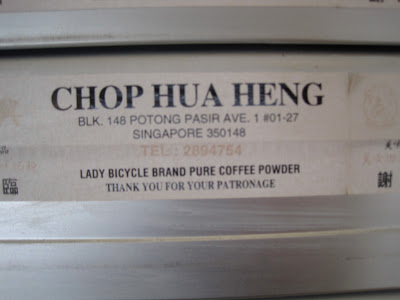
Chop Hua Heng is a shop in Potong Pasir that sells pure coffee powder.
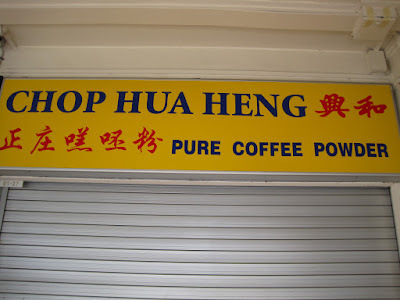
That’s right – none of the instant stuff you find stocking shelves in supermarkets.
I don’t know if Chop Hua Heng pure coffee powder is necessarily healthier than what you get when you buy instant coffee.
But I think there are some advantages to buying coffee from a shop as compared to coffee from a supermarket.
For one, you can vary the coarseness of the ground coffee based on your own needs. You can choose to buy:
- Beans, if you have your own grinder,
- Normal grind, for which you need either a coffee maker or a french press, OR
- Fine grind, which works like instant coffee but leaves a sediment at the bottom of the cup (which you don’t drink, obviously, if you don’t like its taste).
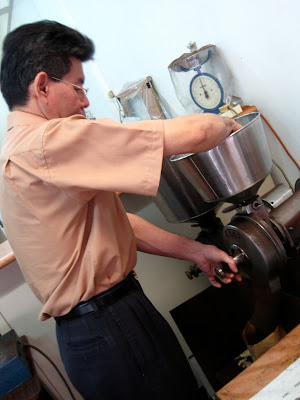
I use finely-ground coffee, because it saves time when it comes to preparing a drink.
Another reason for buying coffee from a shop is that it’s much cheaper than the stuff you get in supermarkets – the most expensive type of coffee that Chop Hua Heng sells is $21 per kilogram.
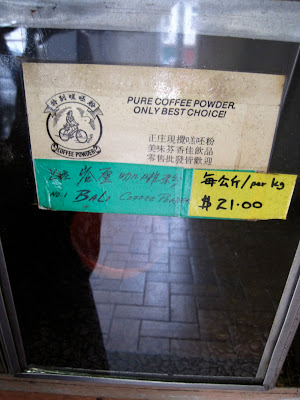
That works out to about $8.40 for a 400g bottle of good-tasting coffee, which is $2 to $3 cheaper than a bottle of Nescafe Gold.
Of course, there are other types of coffee at various prices. Nevertheless, each variety of coffee trounces its nearest ‘instant’ competitor in supermarket chains in terms of taste and price.
Last but not least, you get to be somewhat environmentally friendly by reusing containers which you might otherwise have thrown away.
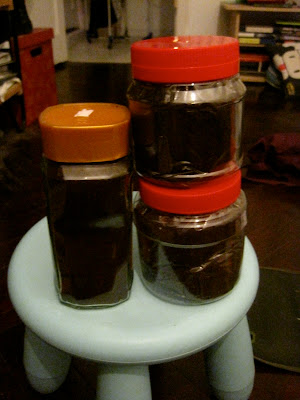
The container on the left is a Nescafe Gold container which I’ve been reusing for the last few years. The containers on the right once contained Lunar New Year biscuits. (Unfortunately, I had to use plastic bags and rubber bands to store the coffee before placing them in the red-topped containers, because I gave those away as gifts to fellow coffee-lovers.)
Now, imagine if I had thrown away those containers and bought NEW containers full of coffee from a supermarket every now and repeated the process every two months or so. How much extra waste would I have generated?
So make it a point to visit Chop Hua Heng soon. I don’t know if it’s open on weekends, but I do know it’s closed on Thursdays.

Even if you don’t live anywhere near Potong Pasir, there are still Chop-Hua-Heng-type shops aplenty all over Singapore, so you don’t have to be a slave to commercialised and over-priced coffee anymore.
—
Chop Hua Heng
Blk 148 Potong Pasir Avenue 1
01-27
Singapore 350148
Telephone: 6289 4754
Open from 9am to 6pm on weekdays, but closed on Thursdays.


